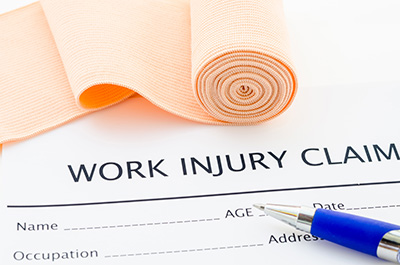A traumatic brain injury (TBI) can occur when someone suffers a sudden, sharp blow to the head. This type of trauma causes brain movement within the skull that can result in bruising and tearing of the tissue and blood vessels in the brain.
TBI events can also be the result of a penetrating wound when there is a break in the skull bone and an object enters the skull directly, such as happens with a gunshot.
Depending on the intensity of the impact, the level of trauma ranges from mild to severe and life-threatening.
According to the Centers for Disease Control and Prevention (CDC), more than 220,000 individuals required hospitalization in 2019 alone after suffering a traumatic brain injury. Additionally, about 176 people in the U.S die every day from traumatic brain injuries.
A variety of hazardous events cause traumatic brain injuries, including workplace accidents.
Which jobs have the greatest risk of brain injuries?
While traumatic brain injuries can happen in any occupation, some workers have a greater risk of injury than others, including:
- Construction workers
- Warehouse workers
- Delivery workers
- First responders like firefighters
- Truck drivers
- Miners
- Roofers
Common workplace accidents that result in brain injuries
Different jobs come with different responsibilities and risks. Some of the most common workplace accidents that can lead to serious brain injury include the following:
- Slip, trip and fall accidents
- Forklift accidents
- Falls from heights
- Motor vehicle crashes
- Being struck by equipment
- Falling merchandise or debris
- Explosions
The immediate and long-term effects of a brain injury
The intensity of the event and the type of trauma the brain tissue suffers determines the physical symptoms a victim exhibits.
A minor blow to the head or sharp head movement may cause a concussion. The victim may briefly lose consciousness, feel disoriented or experience temporary memory loss.
More severe injuries damage tissues at the cellular level, leading to potential internal bleeding and swelling. Symptoms vary depending on the area of the brain affected but may include:
- A severe headache
- Blurred vision
- Nausea and vomiting
- Seizures
- Speech impairment
- Balance difficulties
- Extremity numbness
- Insomnia
- Extreme fatigue or sleepiness
- Short- or long-term memory loss
A brain tissue injury can also cause chemical changes within the brain and alter the communication pathways between neurons, which may result in behavioral or personality changes. Thus, the individual might exhibit:
- Ongoing anxiety
- Depression
- Sudden unexplainable mood changes
- Agitation
- Argumentative or combative behaviors
Severe injury to the brain may permanently prevent the injury victim from returning to work or require them to need help with daily living activities.
Head injuries require immediate medical assessment
It is of the utmost importance that accident victims receive prompt medical attention following any type of head injury. This becomes even more important if the injury occurs at work and you intend to file a workers’ comp claim.
Initially, injured workers may not experience any symptoms after a head injury. But as time progresses, internal bleeding and swelling may occur, which can cause an abnormal increase in internal pressure leading to pain and other symptoms.
If left untreated, permanent brain tissue damage can occur, leading to permanent disability. Extreme intracranial pressure also has the potential to be life-threatening. As such, head trauma sufferers must undergo assessment and imaging studies to determine the extent of the injury to receive the appropriate course of treatment.
Permanent physical impairment (PPI) in workers’ compensation cases is when the treating physician assigns a degree of permanent impairment based on the injuries from the work-related injury. PPI is one of the factors used to determine the value in a workers’ compensation case.
In addition to the potentially life-saving benefits of seeking medical treatment early after a head injury, seeing a doctor immediately after any work injury helps establish a link between your injury and a work accident. This documentation is important to prove that your injury is work-related so you can collect workers’ comp benefits.
Alabama workers’ compensation
The state of Alabama adopted the Workers’ Compensation Act in 1919 to ensure that employees could obtain benefits following a job-related accident. In Alabama, most employers with 5 or more employees are required to carry workers’ comp insurance for their workers.
In most cases, injured workers are entitled to receive workers’ comp benefits regardless of who was at fault for their injury.
Types of workers’ comp benefits in Alabama after a brain injury
In Alabama, injured workers may be entitled to the following types of benefits:
- Medical benefits for all necessary medical treatment and supplies, including doctor appointments, emergency room visits, surgeries, rehabilitation, hospital stays and medication.
- Lost wage benefits cover two-thirds of your average weekly wage if you are unable to work or can only work in a limited capacity after your work injury. After you reach maximum medical improvement (MMI) and receive a permanent impairment rating, you may be entitled to additional compensation, but every case is different.
- Death benefits for certain dependents for lost wages and funeral expenses.
Keep in mind that workers’ compensation prohibits injured workers from collecting compensation for pain and suffering, mental anguish and punitive damages.
Steps to take after a traumatic brain injury at work in Alabama
If you experience any type of accident at work in Alabama that could result in a head or brain injury, take the following steps.
- Seek immediate medical attention. Employees suffering any type of head injury while at work must seek immediate medical attention to prevent the injury from getting worse and to establish a connection between the injury and a work accident. Please note that with the exception of an emergency, you must see an employer-approved doctor to be covered under workers’ compensation.
- Report the accident. The accident should be reported to the employer in a written account within 5 days of the event. Under certain circumstances, if the injured worker is unable to initially file the report secondary to their injury, they have up to 90 days to complete and submit the report. Otherwise, the claim will be denied.
- File a First Report of Injury Form. Once the worker files the report, the employer must file a First Report of Injury Form. The document provides detailed information concerning how the accident occurred and the injuries suffered. Should your employer neglect or refuse to file the form, you should contact the Alabama Workers’ Compensation Ombudsman Program and speak with a workers’ compensation attorney as soon as possible.
Reasons why a workers’ comp claim may be denied
Reasons why an employer may attempt to deny a workers’ compensation claim include:
- Employee failed to notify their supervisor or employer of the accident within 90 days.
- Employee failed to file a written notice.
- Employee failed to seek immediate medical attention.
- The injury was the result of a pre-existing condition.
- The injury did not occur at the workplace.
Bernard Nomberg reflected on the delay tactic used by the employer of his client.
Benefits of hiring a workers’ comp attorney
Birmingham attorneys experienced in workers’ compensation laws assist clients in navigating through the legal process, which can be complicated and confusing.
They fully comprehend the current and future monetary hardships that TBI patients and their families endure, so they can negotiate with your employer and their insurance company to ensure you have the money you need to pay your medical bills and support yourself and your family while you recover.
Additionally, an experienced workers’ comp attorney will investigate your claim, gather evidence, consult experts and file all necessary paperwork so you can rest assured your claim will have the best chance for success.
Contact an Alabama workers’ compensation attorney
If you’ve suffered a traumatic brain injury while working in Alabama, contact the experienced workers’ compensation attorneys at Nomberg Law Firm. We can negotiate with your employer and their insurance company on your behalf so you can focus on recovering from your injury. Contact us today, and let us devise an individualized plan for you.
About Nomberg Law Firm
Nomberg Law Firm has been helping people in Alabama recover fair compensation for their injuries since 1967. We know our clients are hard-working men and women who deserve the best representation possible. That’s why we’ve dedicated our entire practice to fighting for your rights after an injury.
The small size of our family-owned firm allows us to focus on our client’s needs and enables us to provide individualized assistance and personal attention that larger firms simply can’t match.


